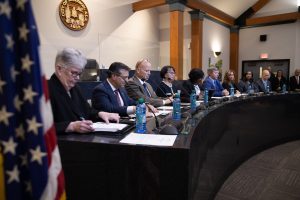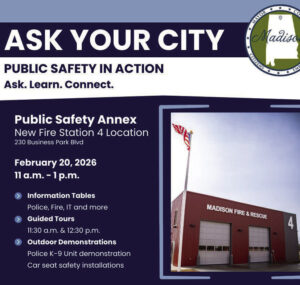Stay-at-home order to fight COVID-19 begins today at 5 p.m.
MONTGOMERY — Beginning at 5 p.m. today, Alabama residents will be required by law to stay at home except for essential and emergency reasons.
Gov. Kay Ivey announced in a conference yesterday afternoon that the law is being placed in effect as a direct result of the rising numbers of COVID-19 related illnesses and deaths.
The order gives law officers the right to enforce the governor’s order.
“Yes, this law can be enforced criminally,” said Alabama Attorney General Steve Marshall. “What we hope for . . . is willful compliance.”
“This is the time we should be working together to get through an extremely difficult time,” Marshall said.
Alabama Public Health Officer Dr. Scott Harris said “the best way to stop the transmission of this disease is to stay 6 feet apart from everyone else, and that’s what we’re asking you to do.”
“Basically, we need people to stay at home,” Harris said.
Residents will be allowed to leave home for essential reasons that include to shop for food and supplies, travel for medical care and to take care of others, Harris said.
Ivey said, bottom line, the new order is being put in place because “folks just simply aren’t paying attention” to directives from health officials to practice social distancing.
People can still buy groceries, medicine and order take-out food, she said.
The order allows people to leave home for these reasons:
• to obtain necessary supplies such as fuel, pet items and items to maintain sanitary and safe operation of a home;
• to obtain or provide necessary services such as medical/dental services, auto repair services, or distance learning services;
• to attend religious services if the event involves fewer than 10 people and those involved maintain a consistent 6-foot separation; drive-in worship services also are permitted if all participants remain in their vehicles during the entire service and all vehicle occupants share the same residence;
• to engage in outdoor activity as long as the 6-foot separation is maintained;
• to seek shelter;
• to travel as required by law;
• to see family members;
• and to work for “essential businesses and operations.” Those can include government operations; health care providers; infrastructure operations; manufacturing facilities; agricultural operations and farms; essential retailers such as grocery stores, liquor stores, hardware stores and pharmacies; essential personal services such as mail delivery or trash collections; media operations; education operations; financial services; professional services such as insurance, legal or real estate; providers of basic necessities to economically disadvantaged populations; construction and construction-related services; essential public services; military or defense operations; vendors that provide essential services; religious entities; and support operations for other essential businesses.
















